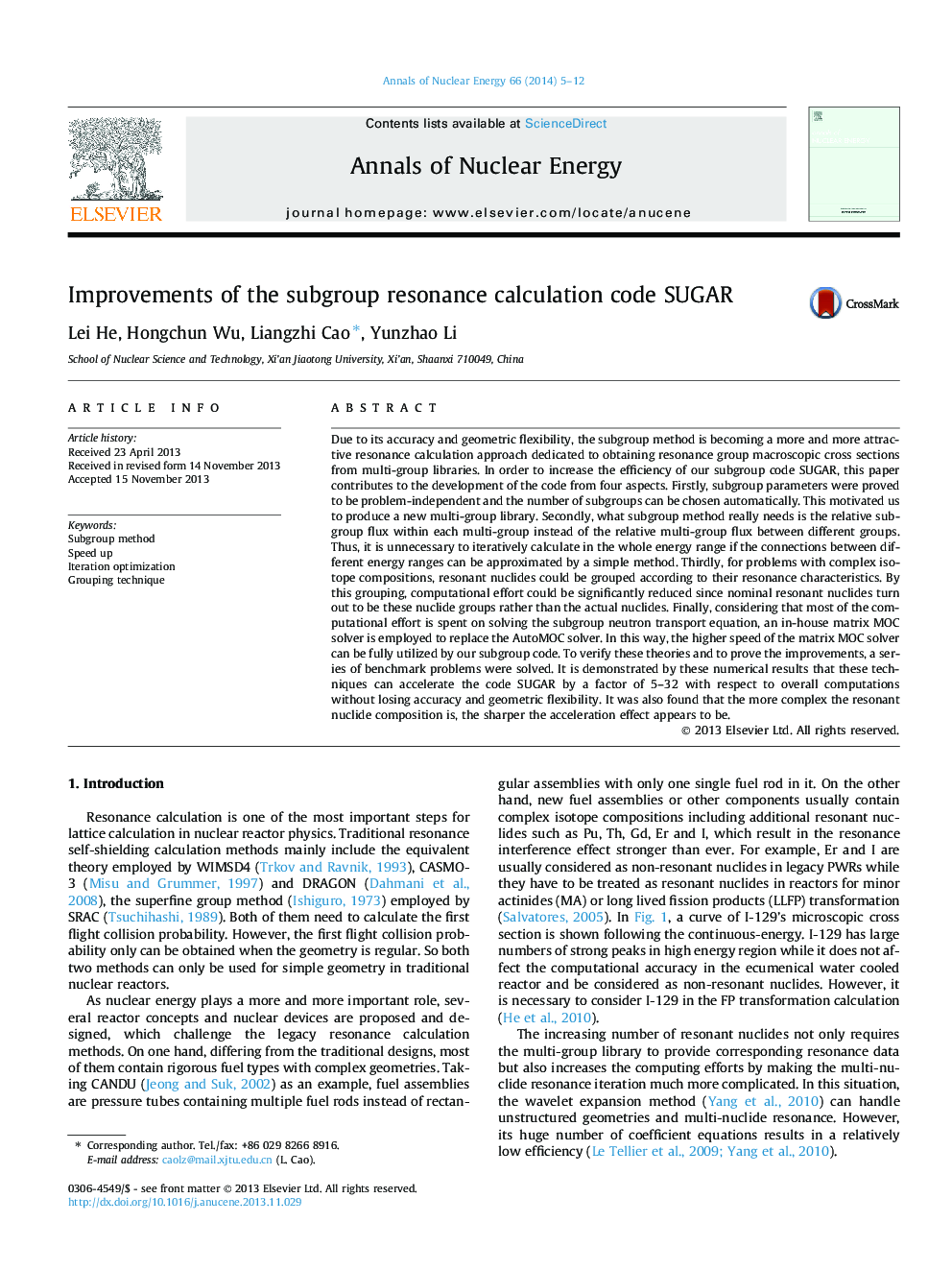| Article ID | Journal | Published Year | Pages | File Type |
|---|---|---|---|---|
| 8069329 | Annals of Nuclear Energy | 2014 | 8 Pages |
Abstract
Due to its accuracy and geometric flexibility, the subgroup method is becoming a more and more attractive resonance calculation approach dedicated to obtaining resonance group macroscopic cross sections from multi-group libraries. In order to increase the efficiency of our subgroup code SUGAR, this paper contributes to the development of the code from four aspects. Firstly, subgroup parameters were proved to be problem-independent and the number of subgroups can be chosen automatically. This motivated us to produce a new multi-group library. Secondly, what subgroup method really needs is the relative subgroup flux within each multi-group instead of the relative multi-group flux between different groups. Thus, it is unnecessary to iteratively calculate in the whole energy range if the connections between different energy ranges can be approximated by a simple method. Thirdly, for problems with complex isotope compositions, resonant nuclides could be grouped according to their resonance characteristics. By this grouping, computational effort could be significantly reduced since nominal resonant nuclides turn out to be these nuclide groups rather than the actual nuclides. Finally, considering that most of the computational effort is spent on solving the subgroup neutron transport equation, an in-house matrix MOC solver is employed to replace the AutoMOC solver. In this way, the higher speed of the matrix MOC solver can be fully utilized by our subgroup code. To verify these theories and to prove the improvements, a series of benchmark problems were solved. It is demonstrated by these numerical results that these techniques can accelerate the code SUGAR by a factor of 5-32 with respect to overall computations without losing accuracy and geometric flexibility. It was also found that the more complex the resonant nuclide composition is, the sharper the acceleration effect appears to be.
Keywords
Related Topics
Physical Sciences and Engineering
Energy
Energy Engineering and Power Technology
Authors
Lei He, Hongchun Wu, Liangzhi Cao, Yunzhao Li,
